Built Environment
MPhil or PhD or PhD by Published Work
Key facts
Start dates
June 2025 / September 2025 / January 2026 / June 2026 / September 2026
Application deadline
It is recommended that you apply at least 6 months in advance to allow adequate time for your application to be processed (in the case of UK/EU applicants no less than 4-6 weeks).
Location
Course length
Full time: 1 - 3 years
Part time: 2 - 6 years
School(s)
Funding status
Self-funded
Overview
The School of the Built Environment has a dynamic and thriving research programme within a research environment that is internationally recognised for its quality and impact.
Research students play a vital role in the school and are integrated into all aspects of academic life, through:
- Research groups
- Involvement in research projects
- Seminar series
- Teaching.
Applications are welcomed from students whose research interests complement those of the research groups. We are particularly interested in applications for:
- Planning
- Real Estate
- Construction.

Degree routes
All students enrol as probationer research students. During the first year you will formally register your research proposal for one of the below routes.
The degree for which you register will depend on your academic qualifications and research experience.
MPhil (with possibility of transfer to PhD)
Most students initially register for an MPhil with the possibility of transfer to a PhD without submitting for an MPhil. During your MPhil you will:
- critically investigate and evaluate an approved topic
- demonstrate understanding of research methods appropriate to the chosen field
- present and defend a substantial thesis by oral examination.
Length of study
- Full Time: min 2 years, max 3 years for MPhil component only; for MPhil/PhD, min 3 years, max 5 years.
- Part Time: min 3 years, max 4 years for MPhil component only; for MPhil/PhD, min 4 years, max 6 years.
Entry requirement: the minimum entry requirement for an MPhil degree, or an MPhil with the intention of transferring to a PhD, is:
- a first-class or upper second-class UK honours degree
- a relevant master’s qualification
- or an equivalent qualification.
Applications from those holding qualifications other than the above will be considered on their merits and in relation to the nature and scope of the work proposed.
PhD direct
The criteria for a PhD are similar to those for an MPhil, with the key difference that:
- the research carried out will result in an independent and original contribution to knowledge.
Length of study:
- Full Time: min 2 years, max 5 years.
- Part Time: min 3 years, max 6 years.
Entry requirement: a recent master’s degree in a discipline appropriate to the proposed research. The master’s needs to have included research training and a research project.
In exceptional cases, applicants who have a good honours degree (or equivalent) may apply for direct registration to a PhD if they have appropriate research or professional experience at postgraduate level which has resulted in published work, written reports or other appropriate evidence of accomplishment. An unpublished master’s dissertation would not suffice in this instance.
PhD by published work
The degree of PhD on the basis of published work may be awarded to candidates whose submitted work:
- reflects the same academic standards as those which operate for a traditional PhD based upon an approved programme of supervised research
- forms a coherent programme of research
- demonstrates the use of appropriate research methodology
- and makes an original and sufficient contribution to the present state of knowledge in a particular field to the satisfaction of the examiners.
Applicants should normally have had some prior association with Oxford Brookes University. The submission for examination comprises the published work on which the application is based, together with a supporting critical appraisal of this work.
Length of study:
- Part Time: 1 year
Entry requirement: the minimum entry requirement is:
- a first-class or upper second-class UK honours degree
- a relevant master’s qualification
- or an equivalent qualification.
Applications from those holding qualifications other than the above will be considered on their merits and in relation to the nature and scope of the work proposed.
Additional details
Recent and ongoing research projects
Co-Creation: a 4-year EU-funded project that aims to bring together different actors, such as researchers, policymakers, residents and artists, to ‘co-create’ understanding about different urban neighbourhoods and to address disadvantage.
Healthy Urban Mobility: a study to understand the impact of everyday (im)mobility on health and wellbeing with a variety of social groups living in different neighbourhoods in Brazil and the UK.
Socio-economic impact of the European Offshore Wind Deployment Centre: aims to explore methods used to predict the socio-economic impacts of Offshore Wind Farms and to compare predicted impacts with actual impacts.
Contribution of Compact Neighbourhoods to Social Sustainability: this EU funded research investigated how compact urban form can promote the social sustainability of intermediate neighbourhood areas in two major European cities, London and Berlin.
Spaces of Hope: exploring the often-overlooked ways in which local people and organisations have come together to improve their physical and social environments.

Why Oxford Brookes University?
The School of the Built Environment is dedicated to offering an outstanding experience for research students. As a research student you will enjoy the following benefits:
- become a member of one of the School’s high quality, ambitious research groups
- study alongside talented academics working in similar fields
- have opportunities to interact with a dynamic research environment that is actively engaged in consultancy projects, teaching and writing funding proposals
- automatic membership of the Faculty’s Doctoral Training Programme (DTP) which brings together staff and students from the Schools of Architecture, Engineering, Computing & Mathematics and Art.
- a wide variety of optional training courses, student events, lectures and other opportunities delivered through the DTP, the Graduate College and wider University
- 24-hour access to digital suites with specialist programmes such as Building Information Modelling (BIM), ArchiCAD, Revit, Geographic Information Systems (GIS) modelling, 3D Studio Max and, Rhino 3D, NVivo and SPSS
- close links that exist with the UK and international practice, industry and government
- all students are allocated a Director of Studies and at least one other supervisor who they meet with regularly
- students have the opportunity to be involved in teaching as part of career development
- a range of personal support that includes access to a wide range of staff who are available for consultation. The University operates a Research Student Entitlement which ensures students receive appropriate and generous support and opportunities to present their work at conferences.
Learning and assessment
As signatories to Vitae Oxford Brookes fully supports the rounded development of research students. Your research will be supported by your supervisory team who are all experts in their fields and have experience of working closely with postgraduate students.
The School’s Postgraduate Research Tutor (PGRT) also ensures that you receive a stimulating and appropriate programme of wider support. Our Graduate College organise and support a variety of events for research students; training and networking sessions to bolster skills, develop concepts and share ideas.
The Faculty’s Doctoral Training Programme (DTP) brings together staff and students from the Schools of Architecture, Engineering, Computing and Mathematics, and Art for bespoke training sessions contributing to your development as a researcher. Students are also encouraged to join at least one of the University’s seven research networks. These provide opportunities to develop collaboration that strengthens multi-disciplinary research undertaken by Brookes academic staff and research students.

Assessment
Assessment methods used on this course
Assessment and monitoring of progress takes place through a number of key stages from the formal registration of your proposal, gaining of ethics approval if required for fieldwork, transfer from MPhil to PhD and the final examination by viva. These are all supported by your supervisory team and the PGRT.
Staff
We have a highly experienced team of research degree supervisors in the school with more staff keen to take on new research students.
Dr Beacon Mbiba
Senior Lecturer in Urban Planning and International Development
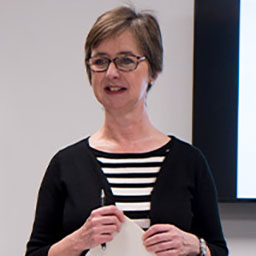
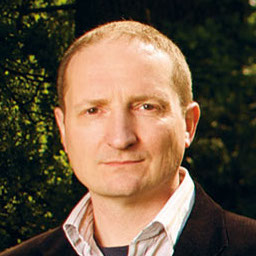
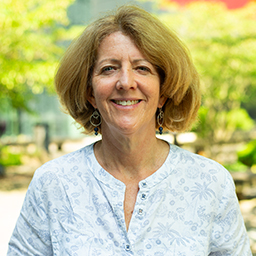
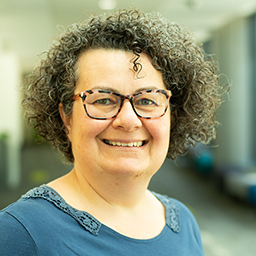
Professor Esra Kurul
Professor of Sustainability Transitions in the Built Environment

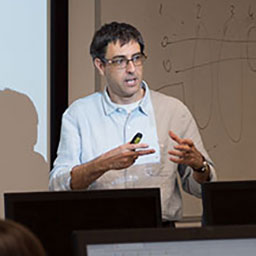
Dr Graham Wood
Associate Professor in Environmental Planning and Spatial Analysis


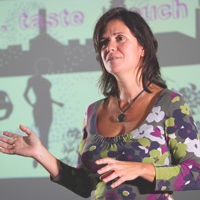
Dr Laura Novo De Azevedo
Principal Lecturer Student Experience, Senior Lecturer in Planning and Urban Design, Subject Coordinator BA in Urban Design, Planning and Development, BA in City and Regional Planning and MPlan
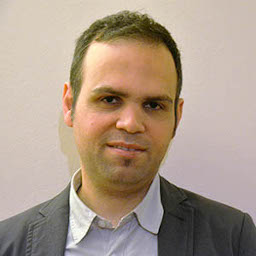

Dr Regina Mapua Lim
Subject Coordinator for Urban Design / Senior Lecturer in Urban Design and Planning
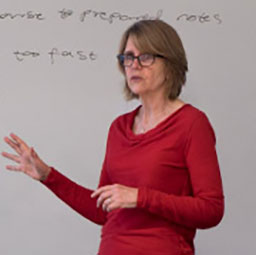


After you graduate
Career prospects
Career development is a key part of the research student journey at Brookes. The University provides an excellent programme of career and professional development training which can be found on the Programme for Researchers page.
How to apply
Entry requirements
Please see the specific entry requirement details in the degree route section above.
Applicants should normally hold a 1st or Upper Second Class Degree (or recognised equivalent qualification).
Appropriate applications will be considered from outstanding candidates with substantial prior experience at an appropriate level.
English language requirements
If English is not your first language you will need to provide a certificate of IELTS at least 6.5 overall (with no less than 6.0 in any element).
As a result of very recent changes made by UK Visas & Immigration, please note we no longer regard TOEFL as an acceptable language test for entry to Oxford Brookes. This applies whether you require a Student visa or not. You can find more details on our English language requirements pages.
If you do not meet these requirements you may be able to take our University English as a pre-sessional course.
Application process
- Please check that you meet the entry requirements, financial requirements and English language requirements of the programme.
- Explore our research groups and supervisory staff pages to see how your chosen field of study aligns with the research portfolio within the school.
- Agree your research
- At this stage, you should contact Dr Richmond Ehwi at rehwi@brookes.ac.uk or +44(0)1865 534014. Advise Dr Ehwi that you are considering making an application.
- You are also welcome to contact particular academics to help you develop your ideas.
- Formulate your proposal. You can indicate any staff members whom you would like to work with, or the Tutors will circulate your proposal to the most appropriate staff to get their comments.
- If the proposal is accepted the Tutors will ask you to make a formal application, or give you advice on how the proposal may be improved. For guidance on writing a PhD research proposal see our Guide to writing PhD Research Proposals.
Supporting documents
Our MPhil/PhD programme requires additional supporting documentation to be submitted as part of the application process.
- research proposal
- scan of your passport - to confirm your name and date of birth. We will then ensure that any offer letters issued to you correspond with your passport name, this will help when applying for a Student visa.
- IELTS Certificate or equivalent (if required) – no older than two years from the proposed start date of your programme.
- scan of your final degree certificates already awarded
- scan of transcripts
- two references (at least one academic). Your references must be on institutional headed paper and be dated and signed by referee(s).
- evidence of funding – (if sponsored by an employer or government, you must provide evidence in the form of a recently dated sponsorship letter on official headed paper. If supporting your studies from private funds, you must provide a recently dated bank statement).
After your Oxford Brookes online application has been submitted, these documents can be e-mailed directly to the Research Administrator in the Faculty of Technology, Design and Environment at tde-researchpgr@brookes.ac.uk.
Tuition fees
Tuition fees
Fees quoted are for the first year only. If you are studying a course that lasts longer than one year, your fees will increase each year.
For International fees the following factors will be taken into account by the University when it is setting the annual fees: inflationary measures such as the retail price indices, projected increases in University costs, changes in the level of funding received from Government sources, admissions statistics and access considerations including the availability of student support.
Home fees are set by UK Research and Innovation (UKRI) and are released approximately five months before the start of each academic year.
If you have any questions about fees, get in touch with the Research Degrees Team at rdt-researchdegrees@brookes.ac.uk.
How and when to pay
Tuition fee instalments for the semester are due by the Monday of week 1 of each semester. Students are not liable for full fees for that semester if they leave before week 4. If the leaving date is after week 4, full fees for the semester are payable.
- For information on payment methods please see our Make a Payment page.
- For information about refunds please visit our Refund policy page
Compulsory costs
| Additional costs | Amount (£) |
|---|---|
Continuation fee The continuation fee, where it is payable is compulsory, but not applicable to Masters by research or PhD by Published Work, detailed as follows:
|
£1455 |
Optional costs
| Additional costs | Amount (£) |
|---|---|
Bench fees for full-time study will be calculated on an individual basis and the amount will depend on the subject and project. In some cases no bench fee will be charged. |
£5000 |
Bench fees for full-time study will be calculated on an individual basis and the amount will depend on the subject and project. In some cases no bench fee will be charged. |
£2500 |
It’s your responsibility to cover print / binding costs where coursework submission is required. Please note that a lot of the coursework is now submitted online. |
From £30 |
| You may choose to purchase books to support your studies. Many books on our reading lists are available via the Library, or can be purchased secondhand. | £20-60 per book |
Accommodation fees in Brookes Letting (most do not include bills) |
£94-265 per week |
Accommodation fees in university halls (bills included, excluding laundry costs) |
£135-200 per week |
Graduation costs include tickets, gowning and photography. Gowns are not compulsory but typically students do hire robes, starting at £41. |
Typically £0-200 |
Students are responsible for their own travel to and from university for classes. For the 2025/26 academic year, the University is introducing an alternative subsidised travel offer for all students with further information on our Travel webpages. |
From £10 |
Resubmission fees If following viva, examiners recommend that a student is required to revise and resubmit their thesis for re-examination, they must pay the resubmission fee for the duration of that period. |
£1455 |
Funding
Some current students have awards from a wide range of external bodies including industry, government bodies and charities, and others are self-funded. Occasionally, the university has a few faculty specific and competitively allocated scholarships which, when available, are advertised on our Research Funding Opportunities page and on jobs.ac.uk.
In addition, details of available funding are available on the funding page for UK and international students.
Funding your studies
Financial support and scholarships
Featured funding opportunities available for this course.
